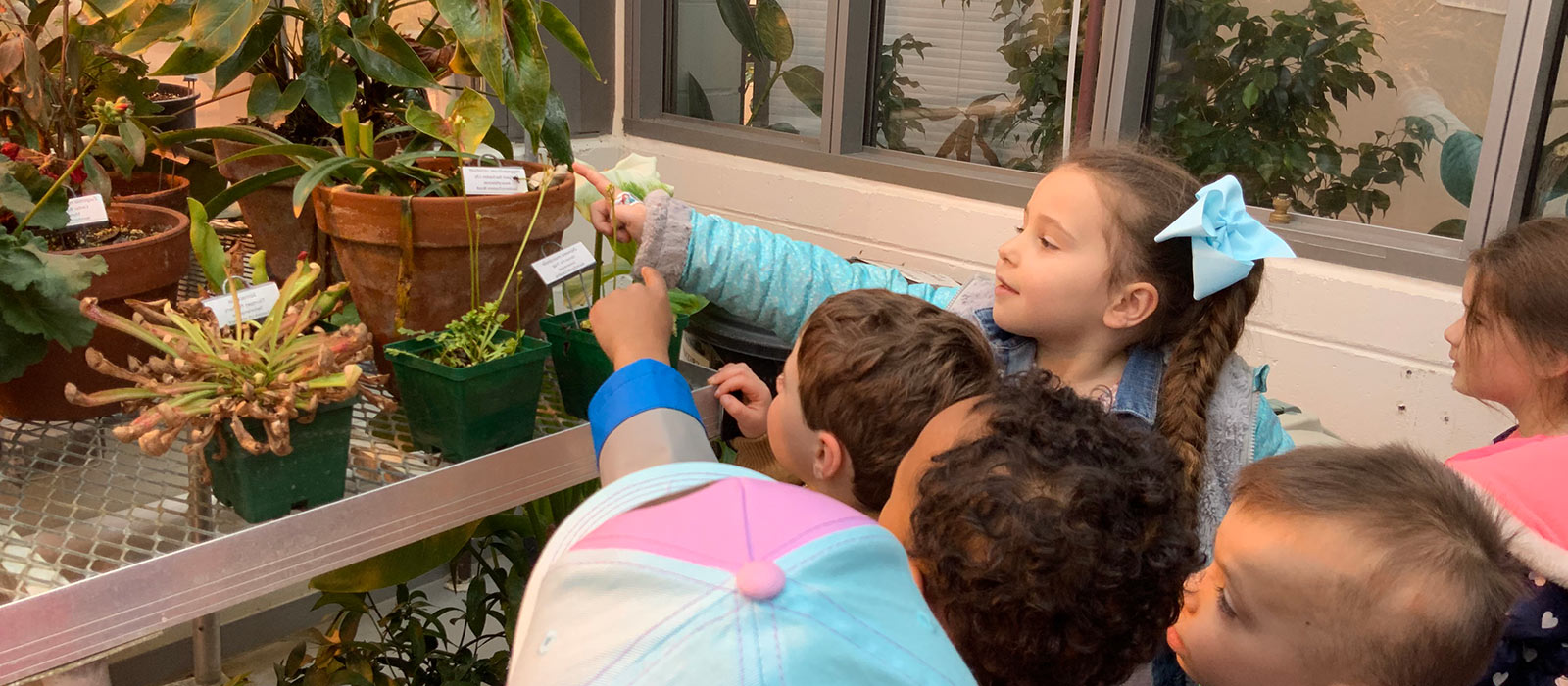On this page
- What is a laboratory preschool?
- What makes the Early Education Center different from other schools?
- What kind of curriculum do you use?
- How do you prepare children to read? Do you teach letters?
- If my child moves from the 3 or 4-day morning class program to the 4-day afternoon class or full day program, what will change for my child?
- Will my child be ready for kindergarten?
- What are your program hours?
- How can I learn more and enroll?
What is a laboratory preschool?
A laboratory preschool is one that is affiliated with a college or university, usually with the school’s psychology or education department. Our laboratory preschool is part of Wheaton College’s Psychology Department. In a lab preschool, the children benefit from expert guidance by teachers and college professors actively working in the fields of child development and early childhood education. College students are able to link theory to practice by observing children through interaction or by using the school’s observation booth. Use of the observation booth is available to parents as well!
What makes Wheaton College Early Education Center different from other schools?
The Wheaton College Early Education Center promotes a nurturing, child-center approach to growth and learning that fosters ability and confidence. Our campus offers indoor and outdoor on-site amenities for learning such as apple orchards, art and dance studios, nature trails and a pond, a greenhouse, as well as performance spaces and gymnasiums for physical play. Additionally, we offer low teacher-child ratios—1:5 or 1:6, with two certified, full-time teachers in the classrooms at all times, as well as part-time student interns.
What kind of curriculum do you use?
Our curriculum is emergent in nature and based on the interests of the children. As keen observers of children’s development, our staff co-constructs the concepts and ideas explored through the curriculum with the children. Interests are developed and revealed as teachers share literature and children explore nature or engage in classroom activities and conversations. Ideas for thematic investigation may come from:
- teacher and children’s interests
- the environment—science through the seasons
- special events on campus
- literature
- family-shared events or occasions
- conflict resolution or problem solving within the classroom
- curriculum resources
- developmental tasks or needs
Within the context of these interests, developmentally appropriate activities are planned. This extends the children’s thinking while developing critical preschool skills including literacy, social-emotional development and physical development. This child-centered approach encourages growth in independence and confidence in learning.
How do you prepare children to read? Do you teach letters?
The teachers focus on phonological awareness—focusing on the sounds in words which is a strong predictor of later reading success. This is done daily through story, rhyme and music. Language development and concept extension, through the literature the teachers select, also promotes early literacy skills for young children. Through playful songs, books with rhyme and predictable text, shared writing and a print-rich classroom, children begin to recognize letters and experiment with sounds associated with letters. Written words are displayed around the classroom and the teachers use these as tools for learning. All activities are planned and developed to address the developmental needs of the learners and promote literacy.
If my child moves from the 3 or 4-day morning class to the 4-day afternoon class or the full-day program, what will change for my child?
Each class is different and tailored by the child’s age and developmental ability. Children move through the program as they grow and begin grasping new ideas and concepts. For example, sometimes children in the 3-day morning class are busy constructing and experimenting. They may not share many ideas about their activities because they are engrossed in thinking. However, they develop the ability to think more critically about their experimenting and can describe their thoughts and actions as they share more school experiences.
There is a lot going on for children at this age, both cognitively and emotionally. They are incorporating self-regulation to work with peers, developing the language to interact socially, expanding vocabulary to describe concepts and ideas explored. They are also growing physically with regard to developing fine motor skills for writing and large motor for physical integration. Each year and phase builds upon the next. Our goal is to provide the children an environment to explore ideas and concepts and help foster school readiness skills. The outcome is that children enjoy engaging in learning and sharing ideas to problem solve with confidence as their worldview expands through experience.
Will my child be ready for kindergarten?
Our approach of embedding the learning of concepts and skills within themes or ideas that are interesting and meaningful to the children prepares them for kindergarten. If there are developmental areas in which we feel an individual child may need more attention, we communicate this with parents. We are licensed by the Department of Early Education and Care and follow the Early Childhood Program Standards developed by the Early Childhood Advisory Council to the Massachusetts Board of Education. We emphasize meeting curriculum objectives in science, technology, engineering, math and art to help foster a successful transition to kindergarten.
What are your program hours?
We offer four programs including half-day, full-day and extended-day options.
Please visit our Programs and Enrollment page for more details.
How can I learn more and enroll?
If you would like to enroll your child in the Wheaton College Early Education Center, please contact us at:
Wheaton College Early Education Center
26 East Main Street
Norton, MA 02766
508-286-8220
[email protected]
